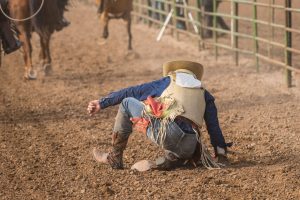My sponsor taught me “Abstinence no matter what,” and for me, it all begins with willingness.
I have severe and persistent mental illness, or SPMI. I don’t see myself as a victim, but I do feel anger regarding my symptoms. I’ve learned, though, that everyone in OA has challenges in addition to their overeating illness that make it difficult to remain abstinent.
I started out weighing 310 pounds (141 kg), but I’ve been abstinent now for ten years and have maintained a 100-pound (45 kg) weight loss, only by the grace of my Higher Power.
I remain willing, one day at a time, to be abstinent. Whenever I feel that willingness begin to wane, I call a fellow OA member.
I started working the Steps immediately when I came to OA. I wrote out Steps One, Two, and Three fairly quickly and turned them over to my sponsor. But writing out the list of resentments for Step Four, as recommended in the Big Book, took much longer. I was determined to be as thorough as possible, but every time I worked on it for longer than five or ten minutes, I would experience a severe episode from my post-traumatic stress disorder. I had painful flashbacks and severe anxiety as I wrote of the abuse I’d suffered at the hands of my parents during my childhood. Often, I would have to let three weeks pass before I could spend another five to ten minutes putting my resentments down on paper. But I did not give up!
I used a chart-based inventory format, the briefest method possible, instead of writing out extended paragraphs about each incident. At the end of five years of persistent Fourth Step action, I’d completed my list of resentments. The chart included a column labeled “Fourth Step Resentment Prayer,” which I was to check off once I’d prayed on that resentment enough to feel fully forgiving of the person or circumstance.
It was just at that time that my HP gave me a beautiful new sponsor, whom I’m still lucky to speak with once a week. It took me two years of weekly visits with her to fully turn over my resentment list. She worked her program by patiently listening to everything about me, every detail of the horrific and twisted abuse I’d been through, which I’ve learned from listening to people in the program is not that uncommon. The emotional and spiritual healing I received from working Steps Four and Five was deeper and more profound that anything I’ve experience in more than thirty years of psychotherapy.
As I said, I do not consider myself a victim. I don’t blame my circumstances on my parents or my SPMI symptoms. I remain willing, one day at a time, to be abstinent. Whenever I feel that willingness begin to wane, I call a fellow OA member. Just today, I made an outreach call to a woman I didn’t know. She too is abstinent in OA and has SPMI. HP had offered me a person to talk to who spoke my language—the language of OA and recovery from dual diagnoses: mental illness and food addiction.
No matter what.
— Julie





